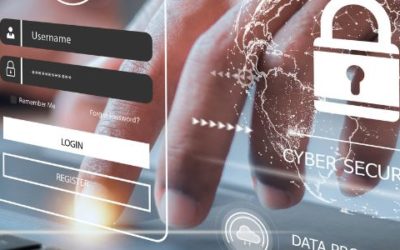How to Ensure Your Employees Don’t Fall Victim to a Phishing Attack
Are you Doing Enough to Protect Your Organization From Complex Phishing Attacks?
As a manager or business owner, security should always be top of mind. One of the most common ways that companies can fall victim to a cyber-attack is through phishing. Criminals are constantly changing their tactics, and many of today’s phishing attempts look extremely legitimate. If you’re looking to prevent phishing, there are a variety of ways you can empower your workers to spot and respond to one of these attacks.
What Is a Phishing Attack?
A phishing attack is a type of “social engineering” that primarily uses email and fraudulent websites to gain personal information from a company or individual via representing a trustworthy organization. Phishing attacks typically begin with an email from what looks like a legitimate organization. It asks for personal information that can then be used to gain access to an account. According to Wombat Security’s State of the Phish™ Report, roughly 75% of organizations experienced some phishing attack in 2017. If you’re hoping to avoid one, there are several things you and your team can do to lessen the risk:
How Can a Company Protect Itself Against Phishing Attacks?
 Educate Your Employees
Educate Your Employees
Perhaps the most important component of a strong cybersecurity strategy is education. It would be best to empower your employees to know how to react when they receive suspicious emails. It’s no longer a matter of when but when it comes to phishing emails. There are a host of red flags to be aware of:
- Emails with generic greetings – Phishing emails will often begin with greetings such as “Hello Sir” or “Hello [Bank X] Customer” as opposed to the actual account holder’s name. Any emails without any identifiable information that are requesting important customer data should be looked at very carefully.
- Spoofed links – You should train your employees to always roll over a link in an email with their mouse before clicking on it. If you see that the web address doesn’t match or that it doesn’t begin with HTTPS, you should avoid clicking on the link. A website should never ask for sensitive information if it is not properly secured with an HTTPS connection.
- Emails asking for personal information – Most companies will never send an email asking for login credentials or personal information by simply clicking on a website link. This is to help customers identify fraudulent emails.
 Run Simulated Phishing Assessments
Run Simulated Phishing Assessments
Aside from cybersecurity awareness training, one of the best ways to ensure your employees don’t fall victim to a phishing attack is by conducting regular simulated phishing assessments within your organization. These phishing tests mimic a real malicious attack and help gauge your employee’s preparedness along with their skills to defend against phishing threats.
 Use Anti-Malware Software
Use Anti-Malware Software
Most antivirus and antimalware software programs have anti-phishing tools to spot fraudulent emails and links within those emails. Be sure to keep your software up to date to ensure you’re protected against the latest virus, malware, and specific phishing threats.
 Check Online Accounts Regularly
Check Online Accounts Regularly
It’s always a good idea to check your online bank and credit card accounts regularly to spot any irregularities. It’s always a good idea to regularly change your passwords at these institutions to prevent unauthorized access.
 When In Doubt, Call the Institution Directly
When In Doubt, Call the Institution Directly
If you or anyone on your team receives an email that looks legitimate, but you’re not 100% sure, it’s always a good idea to call the institution in question to determine whether they actually sent the email. Please don’t use any phone numbers listed in the actual email itself. Instead, do a quick online search to find a legitimate phone number for the organization and call them directly to determine whether the correspondence is authentic.
Unsure of How Your Company Will Stand Up to an Orchestrated Phishing Attack?
If you’re still unsure whether your organization is properly protected against a complex phishing attack, contact IT professionals. Network Computer Pros can provide a cybersecurity assessment to determine whether your anti-malware solutions are strong and up to date. And while no company is 100% immune from a phishing attack, proper security software and training can greatly reduce the chances of you and your team falling victim to one.
Unsure of How Your Company Will Stand Up to an Orchestrated Phishing Attack?
If you’re still unsure whether your organization is properly protected against a complex phishing attack, contact IT professionals. Network Computer Pros can provide a cybersecurity assessment to determine whether your anti-malware solutions are strong and up to date. And while no company is 100% immune from a phishing attack, proper security software and training can greatly reduce the chances of you and your team falling victim to one.
You might also like
The 5 Bad IT Symptoms Plaguing Your Business
Welcome to the Network Computer Pros technology clinic, where we diagnose and treat the bad IT...
IT Consulting: 6 Benefits of a Fixed Rate Model
IT consulting works best when costs are predictable and support is proactive. A fixed rate model...
Latest LastPass Scam: Everything you should know
Understanding and Protecting Yourself from the Latest LastPass Scam After a sophisticated...



